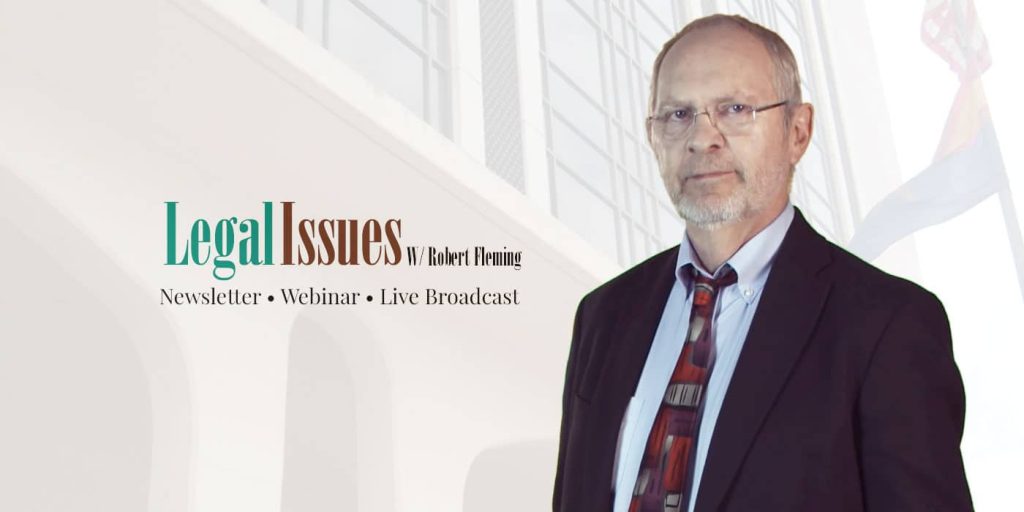JANUARY 23, 2017 VOLUME 24 NUMBER 4
There really is no question that it is important for almost every adult to have a will, and to consider signing both financial and health care powers of attorney. That is what we mean by “estate planning,” and it is important to go through the process of preparing those documents.
But that is not enough. There also are questions about beneficiary designations and other ownership arrangements. Some consideration should be given to whether a trust is necessary or important. And the whole process needs to be undertaken on a recurring basis. Signing your will is usually not the end of the process, and even when it is the whole thing needs to be reviewed again whenever you have major life changes.
Want a story that explains why you need to update your estate plan? Consider Robert Hendricks (not his real name) from Illinois. Robert was the father of two young sons. He and the mother of those two boys had recently undergone a difficult divorce. Robert wanted his sister to manage his estate, and to act as trustee for the benefit of his sons. He even signed a will making those changes — naming his sister as personal representative (executor), naming her as trustee for the boys’ benefit, and leaving his entire estate to the boys’ trusts.
Shortly after the divorce was finalized, Robert tragically took his own life. His sister initiated a probate proceeding, and his will was admitted to probate. But one of the Robert’s principal assets was his 401(k) plan, set up through his work. What would become of that retirement plan?
Robert’s 401(k) account simply did not name a beneficiary. In that case, would it pass to his estate, and thus to the trust for his sons? No, as it turns out.
Like many 401(k) plans, Robert’s spelled out what happens when no beneficiary is named. According to the plan’s summary documents, in that case the participant’s spouse would be the beneficiary, and if there was no spouse then the participant’s children would become beneficiaries. Since Robert’s divorce was final at the time of his death, that made his sons beneficiaries of his retirement plan.
Problem solved. That’s also what Robert’s will specified, right? Well, not quite. Robert’s will would have left all of his money in that trust, controlled by his sister. If his sons are the direct beneficiaries of his retirement plan, then their mother — Robert’s ex-wife — would have priority to manage the funds until the boys reached the age of majority.
Robert’s sister filed a petition with the probate court, asking to be named as the custodian of the retirement accounts for the benefit of the boys as specified in the will. The probate court agreed, and ordered the proceeds paid into accounts under Robert’s sister’s control. The boys’ mother objected, and appealed the decision.
The Illinois Court of Appeals disagreed, and overruled the probate court’s order. The appellate judges noted that Robert’s ex-wife, as the only parent of the two boys, had the clear priority to serve as conservator of their funds, or custodian of any money in a Uniform Transfer to Minors Act (UTMA) account, or in any other capacity.
Furthermore, the proceeds from Robert’s 401(k) were not within the control of the probate court, said the appellate judges. His will did not control where the proceeds went, since the summary plan documents themselves made clear that they went directly to the beneficiaries. The Court of Appeals directed the probate court to reverse its order and leave Robert’s sister out of the loop with regard to his retirement assets. Estate of Hintz, January 10, 2017.
Robert’s story is illustrative of a problem we see on a regular basis. If a client carefully considers his or her estate planning, and signs documents perfectly calculated to accomplish their goals, the inquiry (and, often, our task) is not completed. Beneficiary designations and titling arrangements can undo the best-laid plans. What’s worse: even if everything gets done, and done right, at the time of our office appointment, changes in documents, life arrangements or circumstances can undo the good work of careful estate planning.
All of that is why we ask a lot of questions about insurance beneficiaries, retirement arrangements, and financial account titling. That is also why we ask clients to come back and visit with us every five years or so — or, as in Robert’s case, when they get divorced, have children, get married, change employment arrangements or have other major life changes.
Estate planning is not a set of documents. It is a process, and it continues, morphs and develops over time.



